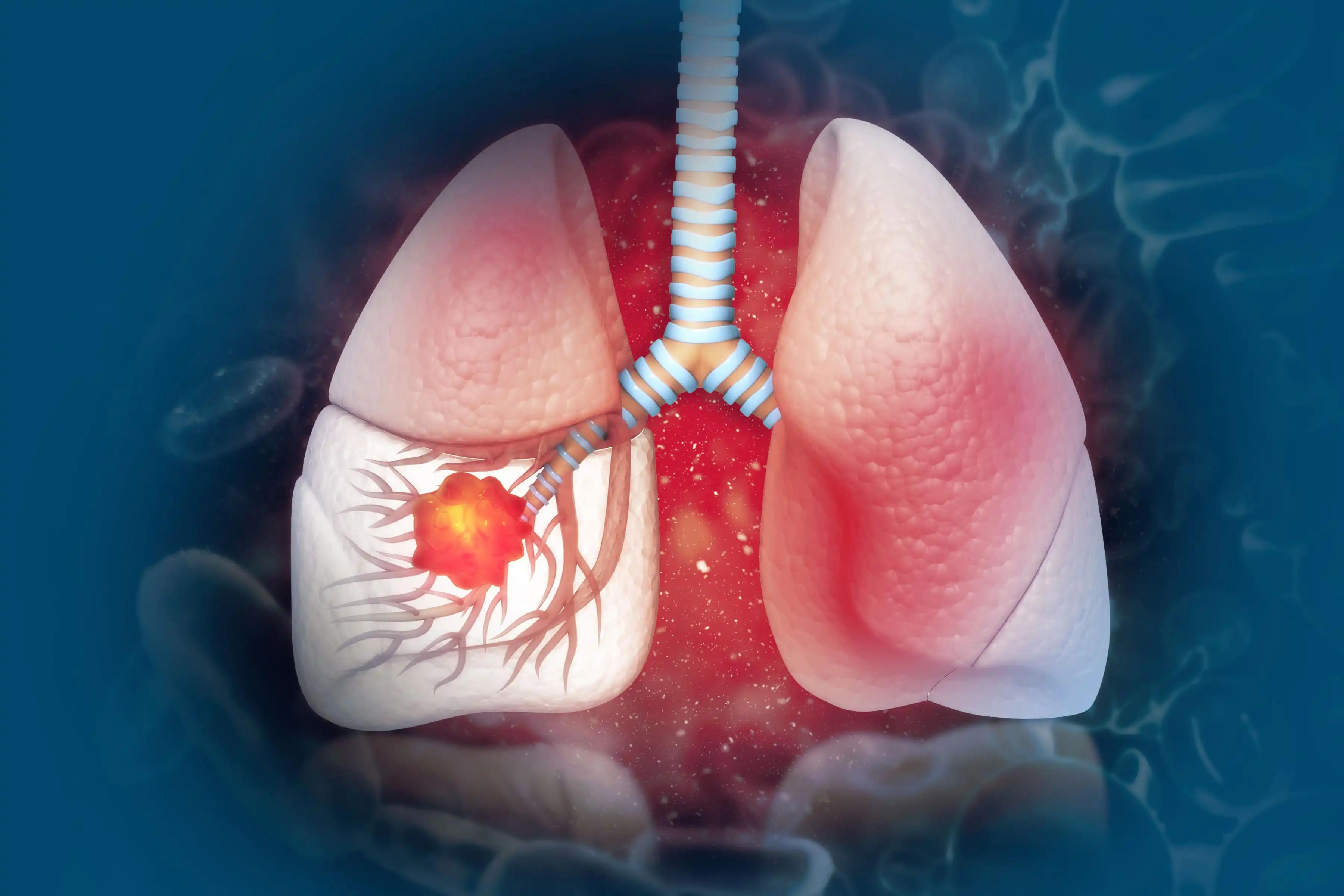KEY TAKEAWAYS
- BEVERLY Phase 3 (NCT02633189) trial sought to study the impact of smoking on a combination therapy in patients with aNSCLC.
- The study aimed to assess the efficacy of combining an angiogenesis inhibitor with epidermal growth factor receptor (EGFR)-tyrosine kinase inhibitor therapy.
- Researchers found that adding an angiogenesis inhibitor to EGFR-tyrosine kinase inhibitor therapy improves PFS and OS in smokers with advanced EGFR-non-small-cell lung cancer.
The ETOP 10-16 BOOSTER study failed to establish a progression-free survival (PFS) benefit for adding bevacizumab to osimertinib in the second line. This trial was prompted by an exploratory subgroup analysis that found a PFS benefit of the combination in patients with a smoking history.
The efficacy of combining an angiogenesis inhibitor with epidermal growth factor receptor (EGFR)-tyrosine kinase inhibitor therapy has been studied by a meta-analysis and comprehensive review. Following the Preferred Reporting Items for Systematic Review and Meta-Analyses declaration, researchers included all applicable randomized controlled trials presented at major cancer conferences or published in PubMed as of 1 November 2021. The primary focus was on PFS as a function of smoking history, and the secondary focus was on OS. Pooled and interaction hazard ratios (HRs) were computed by fixed or random effects models, depending on the reported degree of heterogeneity. The updated Cochrane bias checklist for RCTs was used to analyze potential bias (RoB 2).
Data for smoking was accessible for 1291 participants for PFS from 7 studies and 678 patients for OS from 4 trials. The potential for bias was minimal for all trials. Smokers (n = 502, HR = 0.55, 95% CI: 0.44-0.69) benefited more from the combination treatment than nonsmokers (n = 789, HR = 0.92, 95% CI: 0.66-1.27; treatment-by-smoking interaction P = 0.02) A substantial OS advantage was reported for patients who smoked (n = 271, HR = 0.66, 95% CI: 0.47-0.93) but not for the ones who don’t “(n = 407, HR = 1.07, 95% CI: 0.82-1.42; P = 0.03 where P is treatment-by-smoking interaction ).”
Adding an angiogenesis inhibitor to EGFR-tyrosine kinase inhibitor therapy improves progression-free survival (PFS) and overall survival (OS) in patients with advanced EGFR-non-small-cell lung cancer, but only in smokers. Investigating the biological basis for this finding may reveal that this results from a unique co-mutational pattern induced by tobacco use.
Source:https://pubmed.ncbi.nlm.nih.gov/35696746/
Clinical trial:https://clinicaltrials.gov/ct2/show/NCT02633189
Dafni, U., Soo, R. A., Peters, S., Tsourti, Z., Zygoura, P., Vervita, K., Han, J. Y., De Castro, J., Coate, L., Früh, M., Hashemi, S. M. S., Nadal, E., Carcereny, E., Sala, M. A., Bernabé, R., Provencio, M., Cuffe, S., Roschitzki-Voser, H., Ruepp, B., Rosell, R., … Stahel, R. A. (2022). Impact of smoking status on the relative efficacy of the EGFR TKI/angiogenesis inhibitor combination therapy in advanced NSCLC-a systematic review and meta-analysis. ESMO open, 7(3), 100507. https://doi.org/10.1016/j.esmoop.2022.100507



